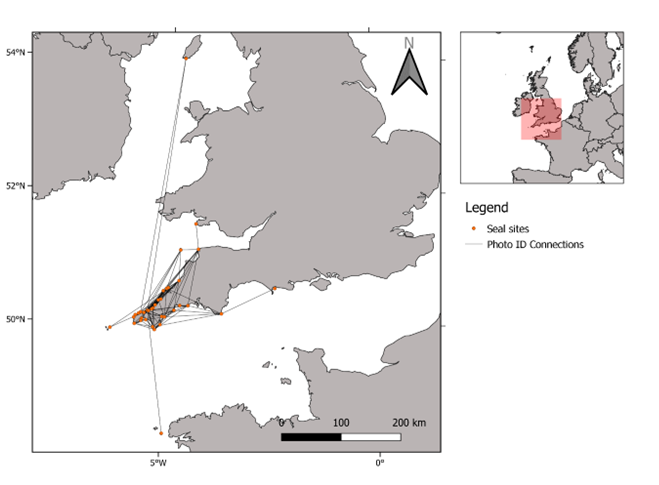July 2023
Seals are one of our most-loved marine species yet are poorly protected by legislation in the UK. Indeed, seals only gained full protection from being killed in the UK in March 2021 (and only thanks to the effect of the stronger US Marine Mammal Protection Act). It’s therefore hugely welcome that Parliament’s Environment, Food and Rural Affairs (EFRA) Committee has called for enhanced protections for our seal populations.
I have been studying seals for over 20 years and the more I learn, the more I realise how little we know about these enigmatic species. With over a third of the world’s entire population of grey seals residing in the UK, these seals share our coastal waters with 30% of the European harbour seal population.
Seals pose a challenge for policy makers as, despite being marine mammals, they more closely resemble seabirds in their habitat use than whales and dolphins. Seals face terrestrial threats in addition to those impacting most marine mammals and the mobility of individual seals presents further difficulties.
Each seal is unique in terms of its looks and movements. At the Seal Research Trust, we have been pioneering intensive seal Photo ID across our southwest region for more than two decades. Even we are sometimes surprised by the degree of individual seal movements and site connectivity we find, see map below. For example, an adult female ‘Tulip belle’ we have known since 2001, has had at least four pups in the Isle of Man 450km away, returning to Cornwall in between. In 2022, we identified a seal from Biarritz who swam 800km in less than a month. Given this degree of mobility, it is clear that seals must be protected wherever they are; within and beyond the Marine Protected Area network.

Photo identified seal linkages across the Celtic Sea 2017 – 2021. (Sayer and Allen, 2023)
Across the UK, seal legislation is neither simple nor consistent. Both native species are fully protected by law from killing and intentional or reckless disturbance in Northern Ireland. In Scotland it is an offence to kill, injure, take and harass a seal at 194 designated seal haul out sites. In England and Wales it is illegal to kill, injure and take a seal, but there is no protection from intentional and reckless disturbance. To the public this makes little sense and causes confusion.
Disturbance causes huge metabolic and physical costs when seals stampede and tombstone into the sea. Given research showing that seals are disturbed 68% of the time when people are present, we need this legal loophole in England and Wales closed fast.
In April 2022, the JNCC’s 7th Quinquennial Review recommended seals be added to Schedule 5 of the Wildlife and Countryside Act, which would make seal disturbance illegal. Given the lack of action, the Seal Alliance helped secure a ‘Seal Protection’ Debate in Westminster Hall that took place last month. The following day, the EFRA Committee’s report ‘Protecting Marine Mammals in the UK and Abroad’ was released. Both emphasised the importance of seals being added to Schedule 5 of the Wildlife and Countryside Act as soon as possible.
This would make marine mammal legislation simpler and more consistent across all marine mammals and across the UK. In the most serious cases of intentional and reckless disturbance, police teams want the power to act. It’s time for the Government to deliver and prevent any further suffering to our much loved and economically valuable native seal species.
Sue Sayer MBE is the Founder and Director of the Seal Research Trust, follow @cornwallsealGRT
The opinions expressed in this blog are held by the authors and not necessarily those of the wider Link membership.
Latest Blog Posts